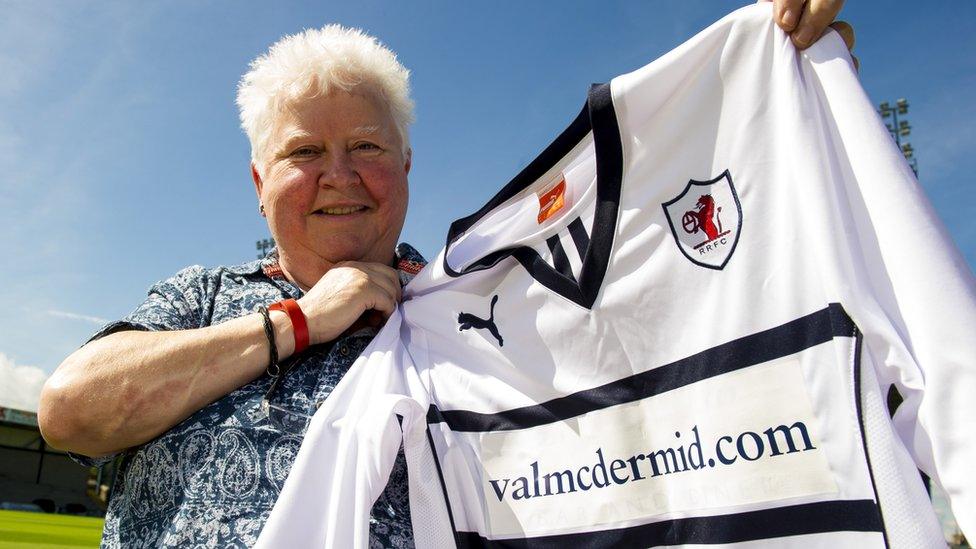Raith Rovers ladies' play first match since breakaway
- Published
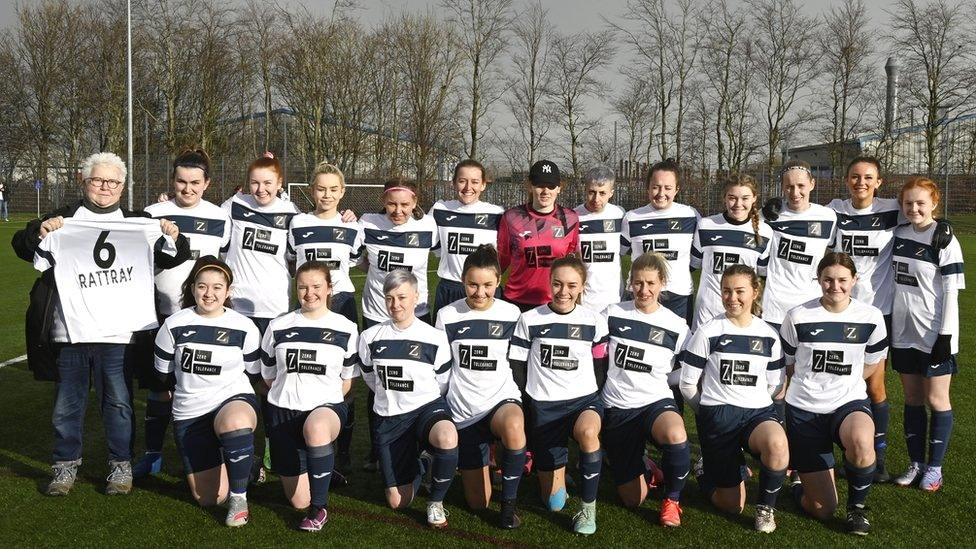
Scottish crime writer Val McDermid with the new McDermid Ladies team
The women's football team formerly known as Raith Rovers have played their first match since breaking away from the club after a rapist was signed.
The ladies team severed ties with the main club after David Goodwillie - who a judge ruled had raped a woman - was signed for the men's side last week.
The team are now playing under the name the McDermid Ladies.
They are named after Val McDermid, the author who moved her sponsorship to the new team in protest.
At their debut match in Fife on Sunday afternoon, Ms McDermid said she was heartbroken by the decision to sign Goodwillie, and that she had shed many tears during the week.
'Woeful, embarrassing, disgraceful'
However, she said she had also been "uplifted and amazed" by the support for those who took a stand.
The author told BBC Scotland: "The club's position has been woeful, embarrassing, disgraceful."
She said while Goodwillie remained on Raith Rovers' payroll and the people who decided to sign him were still in charge she would not return to the club.
There should be a "clean sweep" of the board, she added.
Val McDermid said the club's position had been "woeful, embarrassing, disgraceful"
On Wednesday, McDermid - a lifelong supporter of the Fife side - withdrew her support and sponsorship of Raith Rovers Football Club in protest at the signing.
She was the Scottish Championship team's main shirt sponsor but said the deal would end as a result of the signing.
The name of the author, who was also a director, was worn on the clubs' home shirt and was on the South Stand at Stark's Park.
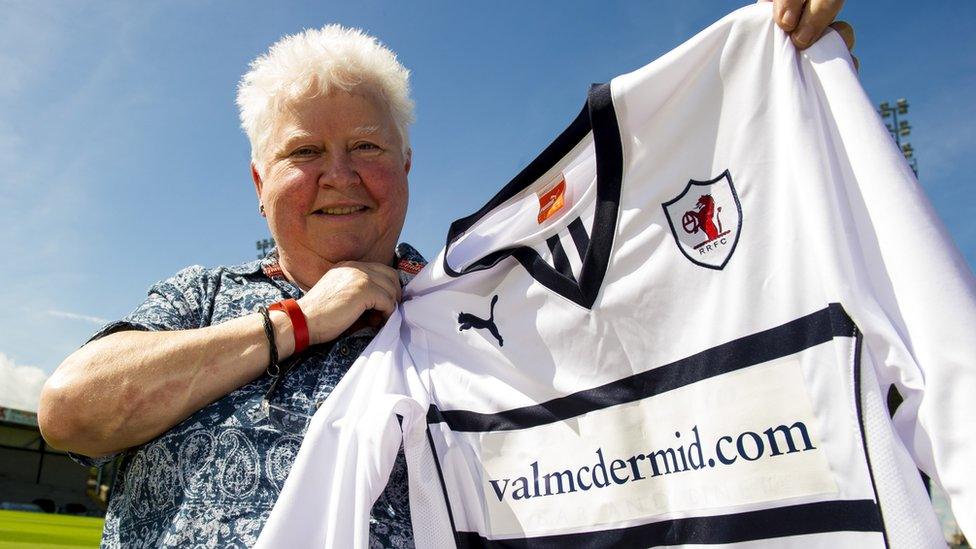
Val McDermid had been the Scottish Championship team's main shirt sponsor but said the deal would end as a result of Goodwillie's signing
The McDermid Ladies' first match was played at Windmill Community Campus in Kirkcaldy, Fife, instead of Raith Rovers' ground.
They wore new McDermid Ladies tops, with the Rovers' crest removed.
The team captain said at the match that a badge or name would not define who the team were, and thanked everyone who had supported the women's side through a difficult week.
The side lost 4-0 to Livingston women's team.
After widespread condemnation, the club admitted it had "got it wrong" by signing the rapist and that it "bitterly regretted" signing Goodwillie - despite initially defending the signing because Goodwillie was "a proven goal scorer".
The U-turn came after two of the Kirkcaldy club's directors - one of whom was once chairman - and the captain of its women's team resigned in protest.
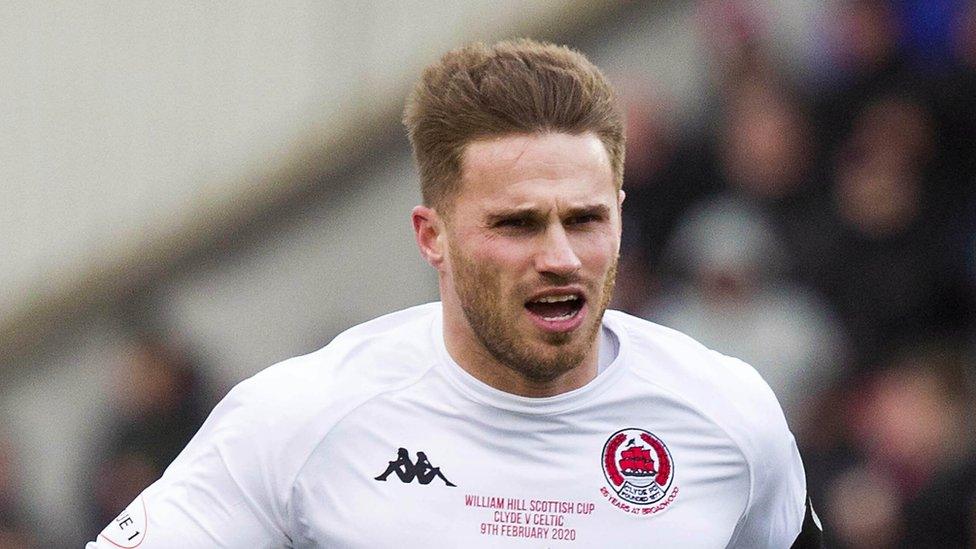
David Goodwillie has played for Clyde for the last five years
First Minister Nicola Sturgeon and the former prime minister Gordon Brown also condemned the signing.
The club said Goodwillie, 32, would not be selected to play and that it was reviewing his contract.
Before the civil case where he was found to have raped a woman, Goodwillie spent time at Dundee United and Aberdeen and played for Scotland.
For the last five years he has been playing for Clyde.
Outrage justified
The woman Goodwillie raped - Denise Clair - told the Sunday Post newspaper, external that outrage at his signing was justified, but it was many years too late.
She said was "shameful" that Goodwillie was allowed to continue playing football after the civil case.
Ms Clair hit out at the footballing authorities, accusing them of being "complicit" with their "silence".
But Ms Clair criticised them over their stance, saying: "Their silence deafened me."
She told the newspaper: "It's shameful they have allowed Goodwillie to continue playing all these years without taking any action. They are just as complicit as [he is] with their silence and looking the other way."
She insisted: "It is not enough for the footballing authorities, the league, the SFA (Scottish Football Association) to stay silent on this.
"They talk so much about equality and respect but when faced with actual reality instead of waffle, their silence deafened me.
"There needs to be officials who do nothing but ensure players and clubs are properly made aware of their responsibilities.
"They should be developing educational programmes about sexual violence. Practical measures, not warm words about nothing, could promote real change."
The SFA have been contacted for comment.
Aileen Campbell, chief executive of Scottish Women's Football, told BBC Scotland's The Sunday Show that across football there had to be "pause for thought" about how the culture should be changed in the sport.
Ms Campbell said people had to feel empowered to speak out if they had concerns, and that had to be supported across the wider football family.
Civil case
Denise Clair said she was raped by Goodwillie and another player at a flat in Armadale, West Lothian, in 2011 after a night out in nearby Bathgate.
Both Goodwillie and Dundee United player David Robertson accepted that they had sex with her but maintained it was consensual.
Police investigated the incident but no criminal prosecution took place.
Ms Clair, who waived her anonymity, maintained in a subsequent civil action that she had been raped by both men.
Lord Armstrong ruled that because of her "excessive intake of alcohol and, because her cognitive functioning and decision-making processes were so impaired" that she "was incapable of giving meaningful consent, and that they each raped her".
He ordered them to pay her £100,000 in damages.
It was the first civil rape case of its kind in Scotland.
Related topics
- Published3 February 2022

- Published2 February 2022
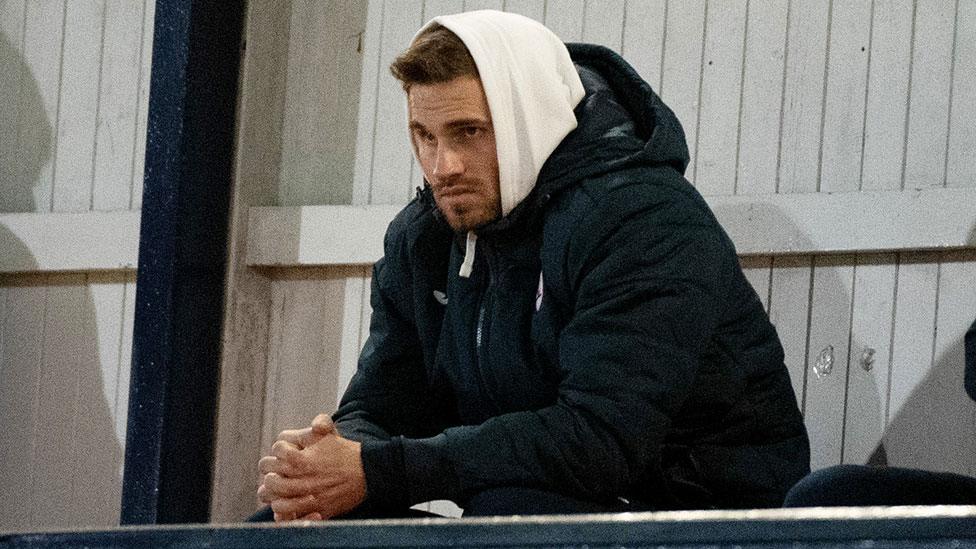
- Published1 February 2022
